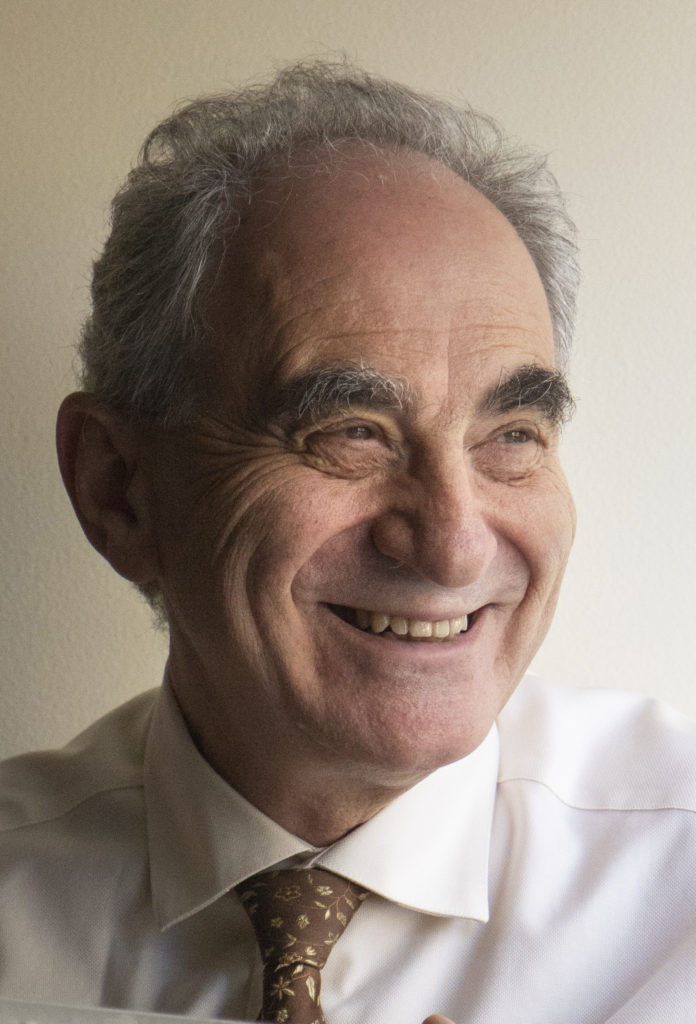Text

Text
Eli Yablonovitch
Co-Director
Next-Generation Devices, Photonics & Optical Interconnects, Accelerators for AI
Dr. Eli Yablonovitch is the James & Katherine Lau Chair Emeritus in Engineering in the Department of Electrical Engineering and Computer Sciences, and Professor in the Graduate School at UC Berkeley. He is also the Director Emeritus of the NSF Center for Energy Efficient Electronics Science (E3S), a National Science Foundation funded multi-University Center headquartered at Berkeley. Dr. Yablonovitch received his Ph.D. degree in Applied Physics from Harvard University in 1972. He worked for two years at Bell Telephone Laboratories, and then became a professor of Applied Physics at Harvard. He joined Exxon in 1979 and Bell Communications Research in 1984, before joining UCLA in 1992. Since 2007 he is a faculty member at UC Berkeley.
Dr. Yablonovitch introduced the idea that strained semiconductor lasers could have superior performance due to reduced valence band (hole) effective mass. With almost every human interaction with the internet, optical telecommunication occurs by strained semiconductor lasers. He is regarded as a Father of the Photonic BandGap concept, and he coined the term “Photonic Crystal”. The geometrical structure of the first experimentally realized Photonic bandgap, is sometimes called “Yablonovite”. In his photovoltaic research, Prof. Yablonovitch introduced the 4(n squared) (“Yablonovitch Limit”) light-trapping factor that is in worldwide use, for almost all commercial solar panels. His mantra that “a great solar cell also needs to be a great LED”, is the basis of the world record solar cells: single-junction 29.1% efficiency; dual-junction 31.5%; quadruple-junction 38.8% efficiency; all at 1 sun.
Dr. Yablonovitch is elected as a Member of the National Academy of Engineering, the National Academy of Sciences, the National Academy of Inventors, the American Academy of Arts & Sciences, and is a Foreign Member of the Royal Society of London. Among his many awards are the OSA Ives-Quinn Medal, the Benjamin Franklin Medal, the IEEE Edison Medal, the Isaac Newton Medal, the Buckley Prize, the IEEE W.R. Cherry Award, and the Adolf Lomb Medal.